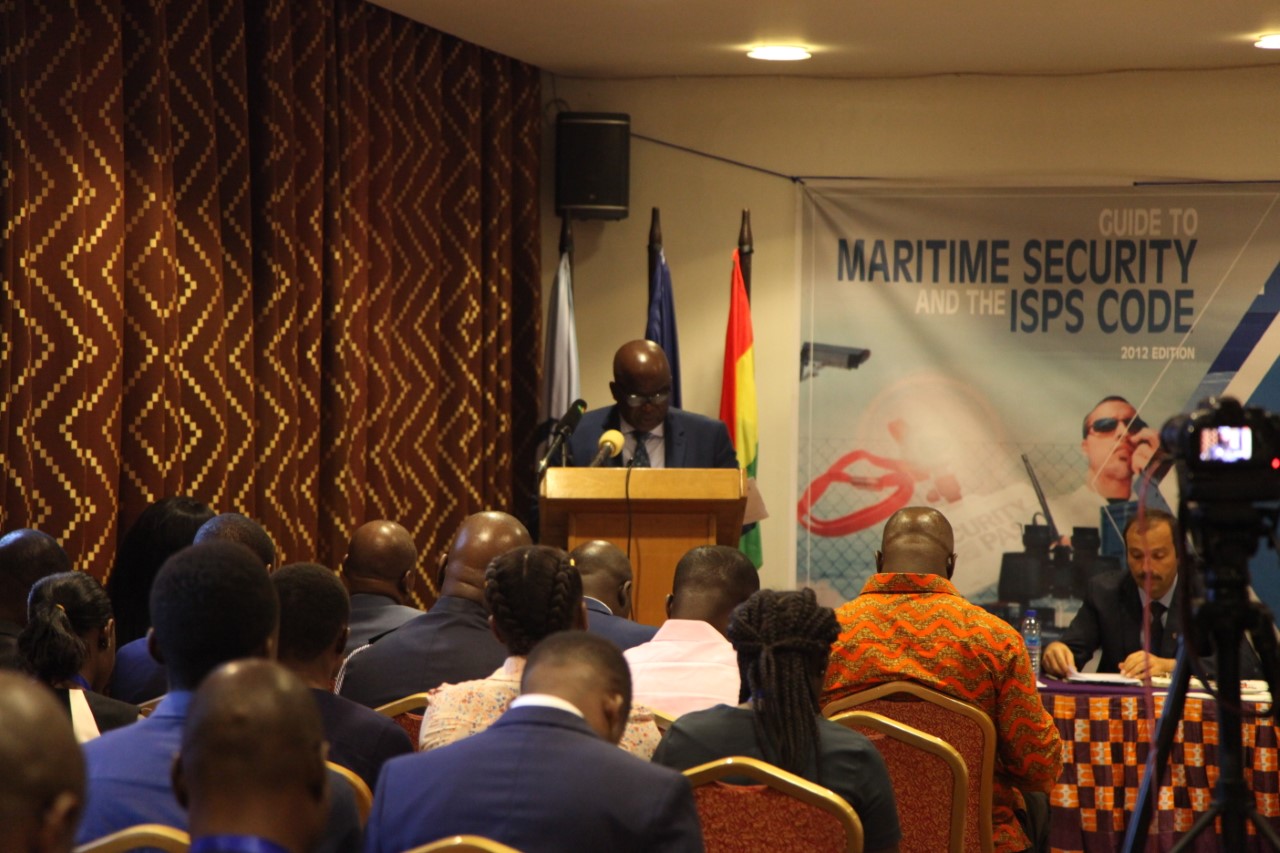A week-long technical capacity building workshop on the International Ship and Port Facility Security Code (ISPS, a risk mitigating mechanism to deter the usage of ships as a means of terrorism across country, is underway in Accra.
The ISPS Code also prescribes minimum security arrangements and responsibilities to governments, shipping companies, shipboard personnel and port facility personnel to detect threats and take preventive measures against security incidents affecting ships or port facilities used in international trade.
It ensures that the ship-to-port interface is kept as secure as possible and makes rooms for three categories of security levels that the ships and ports are supposed to meet.
Director-General of the GMA, Thomas Alonsi, in his opening remarks, commended the IMO for providing its team of highly qualified experts to transfer knowledge to the participants to support the country’s efforts at building upon its port security capacities.
He said: “The implementation of the ISPS Code is a key indicator of an effective port security measure; and the GMA has been at the forefront of the country’s quest to enhance maritime safety and security.”
He added: “This training will improve the knowledge and skills of participants vis-à-vis the requirements for personnel with designated security duties to undertake their responsibilities.”
A senior maritime administrative officer at the Ghana Maritime Authority (GMA), Nana Boakye-Boampong, indicated that the authority will strive to ensure that the country’s ports infrastructure is safe and conducive to support international trade.
“This workshop which is being organized by the IMO for Ghanaian port facility security personnel to help enhance the security measures that we have at the ports.
The impact of this training on trade is enormous; if your port is not safe, you don’t attract ships, you have higher premiums on insurance; and freight rates will go higher and it will toll highly on the economy’ given that we are an import-led country,” he noted.
A representative from the IMO, in his brief remarks, indicated that the rise in illicit and crime activities on the sea, including piracy and armed robbery against ships, drug trafficking and weapon smuggling et al, will require port states to deploy competent security personnel to safeguard its marine and ports infrastructure.
“For these, we need to always get better at protecting port facilities, as well as ships, through the application of IMO’s special measures to enhance maritime security and to address all of these illicit activities,” he said.
